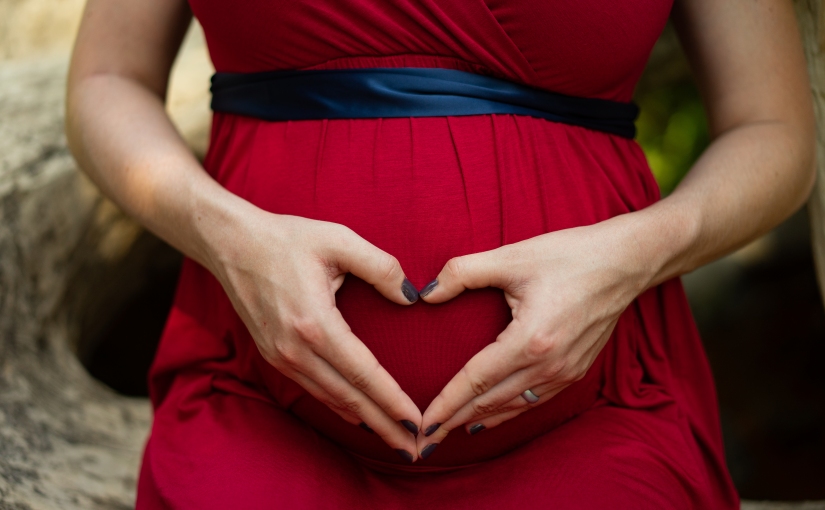Postpartum anxiety isn’t as well known as postpartum depression. I actually didn’t know about it until I was pregnant. According to Postpartum Support International, “approximately 6% of pregnant women and 10% of postpartum women develop anxiety.”
In this post, I’m getting a little more vulnerable as I tell you my journey through postpartum anxiety. This is not medical advice, diagnosis or treatment. I’m hoping by sharing my story that you can find someone to identify with if you think you may have postpartum anxiety and that you can find courage to seek help.
Realizing I Had Anxiety
In early 2019, I started therapy. I attributed my anxiety in large part to my job in a high-stress industry where I felt like I had to drop what I was doing and always be available at a moment’s call. I had been trying to find a new gig for a while but job hunting wasn’t going in my favor. I felt defeated and stuck, but I needed help learning to deal with my situation.
Right away, my therapist could tell how much anxiety consumed me. I would worry about potentially getting a call from work, my mother going on a trip or a doctor check-up. I’d constantly think about the future and plan out conversations in my head before they happened.
It was pleasing to have a third party listen to me and it seemed my therapist could easily point me in the right direction. Soon after starting therapy, I got a new job and the stress lessened but did not disappear.

When I got pregnant later that year, the anxiety dialed back up. I took seven pregnancy tests before my initial appointment. I was constantly worried I would lose my daughter, even into the third trimester, despite having a healthy pregnancy. My therapist warned me that I could experience postpartum depression or postpartum anxiety after birth.
Anxiety after Giving Birth
You know that beautiful moment moms talk about when their baby is first put on their chest? My beautiful moment came when I heard my daughter’s loud cries as she took her first breaths of air. I looked over at her being weighed and measured by the nurse, her daddy awestruck at this sweet little screaming girl and my eyes filled with tears. She was finally here. I could hold her in my arms. Her cries weren’t a bother.
Although her cries weren’t anxiety inducing, in the weeks that followed, worry set in. I became worried if she was eating enough, getting enough tummy time, taking long-enough naps. Did she have thrush, reflux, lactose sensitivity (we had a bit of feeding trouble for a bit)? Was I doing enough as a mom?
Having an Anxiety Attack
As my maternity leave came to a close, the anxiety increased. Cora, who was eight-weeks-old at the time, would be going to day care. It was one my husband and I had previously vetted and loved, but now, my mind only thought of it as a place filled with germs. I was TERRIFIED of her first sickness and knew it would come soon. In the days leading up to her first day, I couldn’t sleep. I’d wake up and stare at the clock for an hour or two of intrusive thoughts.

Eventually, though, the day arrived. I took her to day care, feeling weird about passing my child over to a stranger and expecting them to know what to do with her. She had all these quirks I wanted to explain. This day is hard for lots of mamas.
I felt empty and sick when I got back home and prepared for work. My knees were weak, legs shaky and standing seemed impossible. My gut churned with nausea and worry. My vision blurred. My heart raced. My mind flooded with news stories of the “double-barrel flu season” and RSV that was “three times higher” that year.
How would I get my child, just two-months-old, through this? Could I call on my family who lived 4.5 hours away for help? Was I being dramatic? What if I didn’t notice signs of trouble quickly enough?
Mind you, the sickness had not even happened yet (though her first cold did come in about a week). This was an anxiety attack. Luckily, I knew what was happening after hearing of loved ones feeling similar and sudden senses of dread.
At some point, I was able to take myself through the motions of getting ready for work and faked a smile the rest of the day. Other work mamas understood the pain and that was comforting. I called the day care three times that day to check in on her.
In the months that followed, I watched the day care’s app like a hawk to check when they fed her, how much she ate (She drank two ounces less. Is she feeling ill?), how long she slept (Was it too short or too long of a nap?) and how many dirty diapers she had and I charted it all in a notebook that I kept since she was born. She was about 5-months-old before I decided to let go of the notebook.
Starting Medication for Anxiety
Like I mentioned before, I knew I had anxiety before pregnancy but had started to feel like I was gaining control of it. However, with the flood of hormones after birth, the anxiety was too intense to handle any longer. I felt crazy with worry.
Eventually, I took the plunge and asked for help. I was prescribed a low dose of a non-addictive antidepressant that also helped with anxiety and was safe for breastfeeding. (Very important to work with a doctor to find the right medication and dosage.) It took a couple of weeks to kick in.
During that couple of weeks, the fight or flight response battled it out in my body. Anxiety would want to make my heart race, but my head would tell me, “Nah, we don’t have to worry about that.” It was a strange sensation, but I was happy to see the medicine was starting to work.
To be honest, I was scared to be on medication because I was ashamed. Even though I preached to people who felt anxiety or depression that there was absolutely nothing wrong with getting medicine to help with mental issues, in my mind, I thought I would catch myself before I got to that point.
After being on medication for a year now, I am glad I did it. It’s not something I will be on forever, but it helped me realize I don’t have to worry so much and am capable of making the space around me calmer. I see now how important it was for me to get help to reach this point.
There have been setbacks. It’s not like I will never feel anxiety again, but the anxiety I feel every now and then is much more controllable. I know life goes on just fine when I don’t worry so much and all the things I worry about don’t necessarily come to fruition.
Continuing My Journey of Self Care
In 2021, I am continuing my journey of self care. 2020 was spent clearing the clutter from my home and from my mind (can’t be the only one who did this, right?). This year, I’ve mapped out goals through a vision board, plan to take on new hobbies and plan to return to some hobbies that helped me release pent up energy in the past. Some activities that brought relief for me in the past include fitness, reading, yoga and spending time in nature.
Creating a Couple’s Vision Board
A how-to guide on creating a couple’s vision board and how a vision board can help connect you to each other.
You Are Not Alone
Mamas, if you are feeling postpartum anxiety, I empathize with you. I hope sharing my story shows that you are not alone in how you feel, you are not crazy for how you feel, and you are nothing less when you ask for help. By seeking help – whether that is by reaching out to your community of friends and family, by talking to a therapist, by starting medication, by reading a self-help book, by releasing your stress in a hobby – you are showing your strength.
You are showing those close to you how important it is to love yourself and not let your life rot in worry. You are becoming the best version of yourself, which is only accomplished by first taking care of yourself.
Below are some resources on postpartum anxiety and a couple of Facebook groups dedicated to moms if you want to build your community of support.
Resources
Postpartum Support International
- Postpartum Anxiety
- Postpartum Depression
- Postpartum Obsessive
- Postpartum PTSD
- Helplines
- Local Support and Help
- Resources for Fathers
Anxiety and Depression Association of America
Facebook Groups
If you have any other resources you think would be helpful, please leave them in the comments below. ❤ Thanks for listening.


